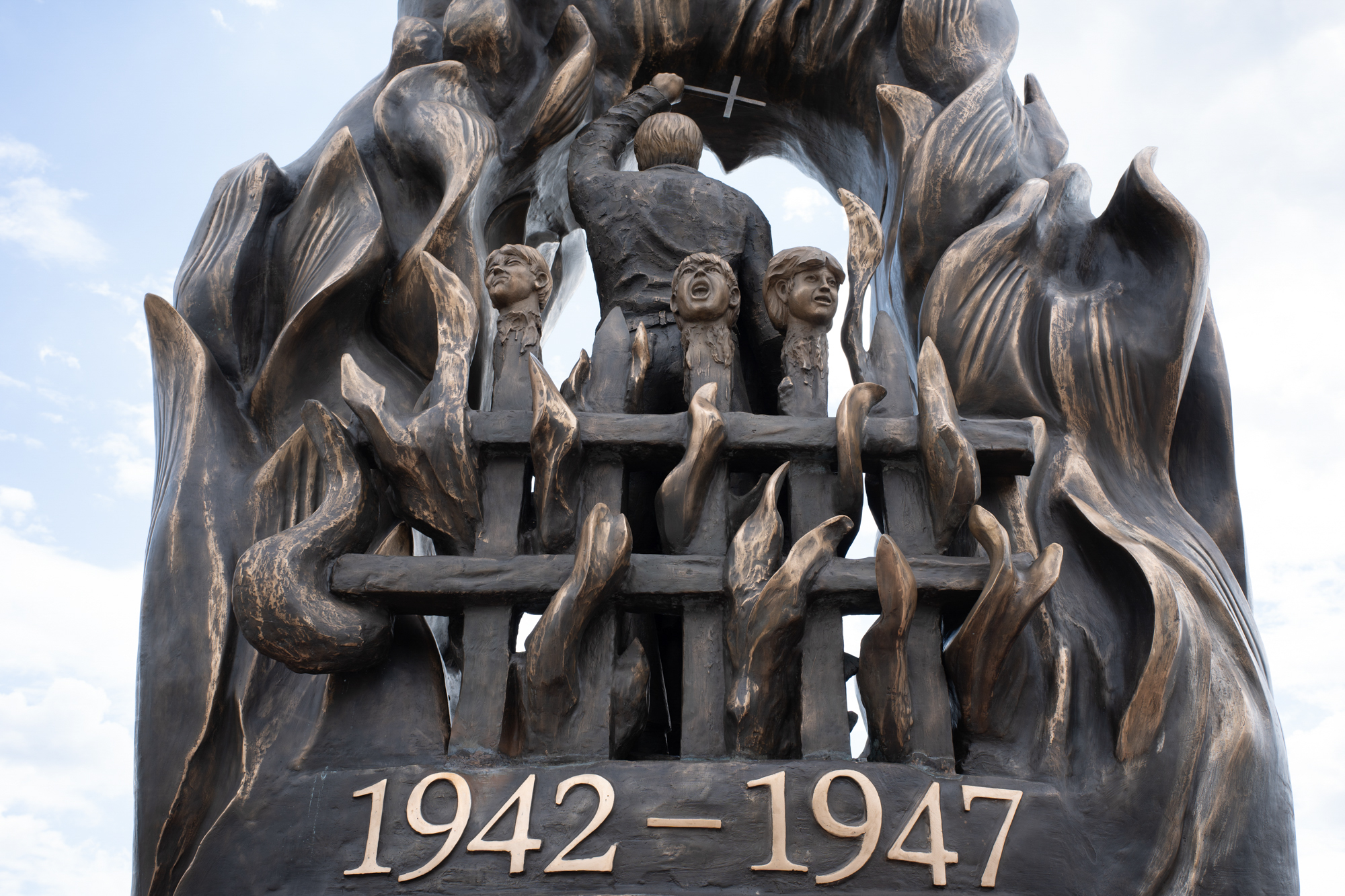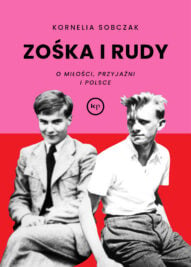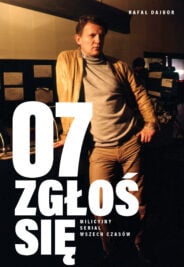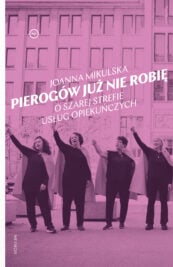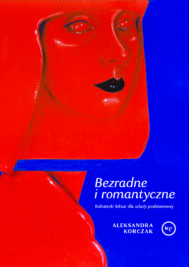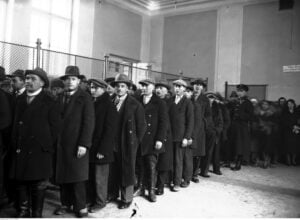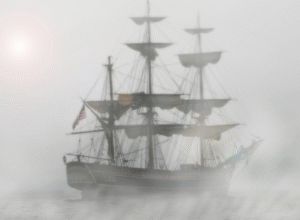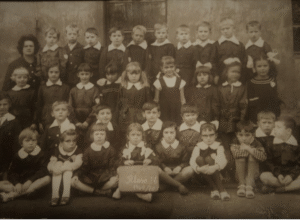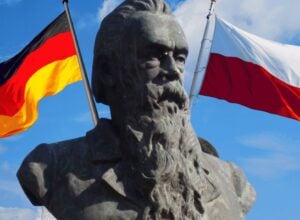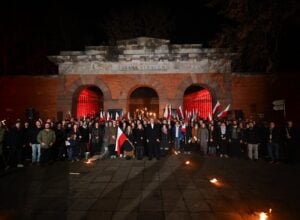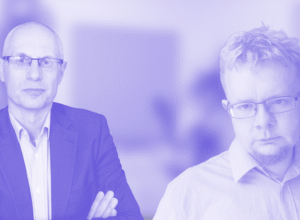Katarzyna Przyborska: Kolejni polscy politycy warunkują poparcie dla wstąpienia Ukrainy do UE ekshumacją ofiar rzezi wołyńskiej. Z doniesień o wizycie ministra Sikorskiego w Kijowie przebijają się informacje o konflikcie szefa MSZ z prezydentem Zełenskim. To wygląda na szantaż albo na wrzucenie wstecznego biegu w relacjach. Najpierw blokada zboża, teraz powrót do trudnej historii. Ekshumacje i pochówek są ważne, ale czy akurat w tej chwili? Ukraina walczy o przyszłość, Polska o przeszłość.
Wojciech Konończuk: W oświadczeniach polskich polityków bardzo jasno wybrzmiało, że aktualne napięcia polsko-ukraińskie nie wpłyną na wsparcie militarne ze strony Warszawy. Sfera wojskowa jest wyjęta z polsko-ukraińskich napięć, dlatego że w interesie Polski i całej Europy leży wspieranie Ukrainy w trwającej wojnie. Nie zgodziłbym się natomiast z tym, że to Polska włączyła wsteczny bieg. Wydaje mi się, że jeśli ktoś to robi, to Ukraina. Polscy politycy wyborców mają w Polsce, a nie w Ukrainie, a polskie społeczeństwo jest rozgrzewane w ostatnich tygodniach niezrozumiałym zakazem poszukiwania ofiar i ekshumacji, a przecież ta sprawa ciągnie się od 2017 roku. Trudno pojąć dlaczego – biorąc pod uwagę wszystko dobre, co się wydarzyło między dwoma państwami po 2022 roku – Ukraińcy cały czas ten nieszczęsny zakaz utrzymują. To działanie nieetyczne.
A z perspektywy ukraińskiej jak ta sprawa wygląda? Właśnie wrócił pan z Kijowa, czy te napięcia są tam tematem?
Właściwie wszędzie byłem o to pytany. Mam wrażenie, że większość Ukraińców tak naprawdę nie rozumie, co się dzieje. W Ukrainie to jest tradycyjny problem – brakuje osób, które rozumieją Polskę, brakuje osób, które byłyby w stanie przekazać na najwyższym szczeblu, że to, co ma miejsce dzisiaj, uderza w interesy ukraińskie. Ten niezrozumiały, utrzymywany moim zdaniem wolą prezydenta Zełenskiego, zakaz poszukiwań i ekshumacji sprawia, że rosnąca część polskiego społeczeństwa porzuca proukraińskie sympatie. Powstaje pytanie, dlaczego ta sprawa jest dzisiaj w Kijowie na tyle kluczowa, że tego nieszczęsnego zakazu nie chcą zdjąć.
Co może być tym powodem?
Strona ukraińska przypomina umowę, wedle której polska strona miała odnowić tablicę na górze Monasterz, zniszczoną jeszcze w 2015 roku przez nieznanych sprawców, prawdopodobnie środowiska prorosyjskie. Pomnik został przez stronę polską odnowiony w 2020 roku, tyle że bez tablic, na których są nazwiska zabitych w walce z NKWD członków UPA. Strona ukraińska ma tutaj rację, że pomnikowi nie przywrócono oryginalnego kształtu. Tylko zwróćmy uwagę na asymetryczność całej tej sprawy: mamy upamiętnienie członków UPA, którzy są przecież postrzegani jednoznacznie negatywnie w polskiej historii, którzy po polskiej stronie granicy mają swoje groby z krzyżami, a po stronie ukraińskiej mamy do wykonania gigantyczną pracę, aby odnaleźć miejsca, gdzie przypadkowo zostały zakopane nie tylko ofiary Wołynia, ale m.in. również ofiary operacji polskiej NKWD czy żołnierzy września 1939 roku. Ukraiński zakaz poszukiwań, a następnie ekshumacji jest totalny, dotyczy wszystkich polskich ofiar konfliktów zbrojnych, których w Ukrainie spoczęło znacznie więcej niż Ukraińcy u Polsce. Dysproporcja, jeżeli chodzi o liczbę ofiar, jest ogromna.
Rozumiem, że ekshumacje są potrzebne. Ale nie rozumiem, dlaczego właśnie teraz, kiedy Ukraina walczy o życie. W 2022 roku, już po ataku Rosji na Ukrainę, powstało Memorandum o współpracy w obszarze pamięci między ministrami kultury Polski i Ukrainy. Była już pierwsza zgoda na poszukiwania prowadzone przez polsko-ukraiński zespół. W 2023 roku ministrowie Polski i Ukrainy złożyli razem wieńce na Skwerze Wołyńskim, pod pomnikiem ofiar rzezi. Założenie było takie, że dalsze prace będą prowadzone po wojnie. Co się od tego czasu zmieniło?
Aby rozpocząć ekshumacje, najpierw potrzebne są ukraińskie zezwolenia na poszukiwania, a tych strona ukraińska w ostatnich latach, poza trzema przypadkami, nie wydaje. W tych trzech przypadkach znaleziono polskie ofiary – żołnierzy września 1939 roku i ofiary zbrodni wołyńskiej w Pużnikach – ale zgody na ich ekshumowanie i godne pochowanie nadal nie ma. Z punktu widzenia strony polskiej wojna nie jest przeszkodą, aby całą akcję prowadzić, szczególnie że dotyczy ona głównie zachodniej Ukrainy, gdzie sytuacja bezpieczeństwa jest znacznie lepsza niż w innych regionach.
W ukraińskich mediach czasami panuje przekonanie, że Polska rzekomo chce zmusić Ukrainę do przyjęcia polskiej interpretacji historii wołyńskiej. Tymczasem chodzi nam wyłącznie o zniesienie tego nieszczęsnego, niemoralnego zakazu poszukiwań, a potem ekshumacji. Niemcy, mimo trwającej wojny, cały czas szukają w Ukrainie żołnierzy Wehrmachtu z okresu II wojny światowej, cały czas mogą to robić i dostają zezwolenia. Polacy nie dostają zezwoleń na to, żeby poszukiwać choćby polskich żołnierzy wojny polsko-bolszewickiej, którzy walczyli także o wyzwolenie Kijowa.
Czy na pewno jest tak, że Polska nie chce Ukrainy zmuszać do swojej wersji historii? W Polsce mało kto rozumie, że Bandera nie jest postacią jednoznaczną, że w Ukrainie jest symbolem walki z imperializmem radzieckim, a nie czczony jako polakożerca. A z Banderą – jak mówią politycy – Ukraina do Unii też nie wejdzie.
Ukraina ma prawo interpretować swojego bohatera po swojemu, ale musi liczyć z konsekwencjami. Gdybyśmy stawiali pomniki zbrodniarzy, którzy odpowiadali za pogromy antyżydowskie, to naraziłoby to na szwank relacje polsko-żydowskie.
Na marszu 11 listopada wyraźnie widać antyukraińskie hasła. Premier Morawiecki składał kwiaty pod pomnikiem Brygady Świętokrzyskiej, mamy pomnik Kurasia – „Ognia”, antysemityzm był tak powszechny, że gdyby sprawdzić pod tym kątem postaci, które umieściliśmy na cokołach, mielibyśmy problem i z pisarzami. Polscy patrioci palili cerkwie na Podlasiu i Chełmszczyźnie. W Hajnówce odbywają się marsze ku czci mordercy…
Ale my ich nie czcimy – i to jest ta różnica. Na poziomie państwowym nie ma kultu zbrodniarzy. W Hajnówce mamy wystąpienia sił radykalnych, które nie rządzą państwem. Natomiast w Ukrainie mamy kult, który jest aprobowany na poziomie państwowym. Jeśli stawiane są pomniki i ulice nazywane imieniem zbrodniarza współodpowiedzialnego za zbrodnię wołyńską, jakim był bez wątpienia Roman Szuchewycz, to jest to problem. Nawet jeśli przyjmiemy, że Ukraińcy honorują go za walkę z Sowietami, a nie za zbrodnie na Polakach, to mamy prawo mówić, że się nam to nie podoba.
Roman Szuchewycz, dowódca Ukraińskiej Powstańczej Armii, jest w Polsce mniej znany, politycy o nim nie mówią. No i sama UPA nie jest jednoznaczna.
UPA miała dwa wymiary. Jeden, który my głównie widzimy, czyli ten antypolski, ale miała też wymiar, który był pewnie kluczowy dla samej UPA, czyli antysowiecki. Dlatego po polskiej stronie pewnie też jest coś do zrobienia – zaakceptować, że UPA nie tylko była organizacją, która dokonała czystki etnicznej na cywilnych polskich mieszkańcach, ale również walczyła z okupantem sowieckim nawet kilka lat po zakończeniu II wojny światowej.
Czy gdybyśmy to my byli zaatakowani, gdyby teraz płonęły nasze elektrownie, szpitale, domy, a nasze dzieci siedziały w schronach, to czy na pewno z ochotą przystąpilibyśmy do rozliczania się z własnych grzechów sprzed kilkudziesięciu lat?
Na poziomie międzypaństwowym, polsko-ukraińskim, nie mówimy o sporze o historię, tylko sporze o jak najbardziej współczesne kwestie, czyli o ukraiński zakaz. Dlaczego państwo, które prowadzi egzystencjalną wojnę, jest tak bardzo uparte, że nie chce go znieść?
Z doniesień o spotkaniu ministra Sikorskiego, szefa MSZ Litwy Landsbergisa i prezydenta Zełenskiego wynikało, że Landsbergis nie poparł Sikorskiego w sprawie ekshumacji. Rozumiem, że na linii Polska–Litwa też są zaszłości, a Polska jest w nich widziana jako ta, która blokowała niezależność Litwy, ale czy ten konflikt na arenie międzynarodowej jest w ogóle zrozumiały?
Relacje polsko-litewskie są dzisiaj najlepsze w najnowszej historii. Sporo udało się już przepracować i zrozumieć po obu stronach granicy. Mam wrażenie, że sprawa napięć polsko-ukraińskich w oczach osób spoza Ukrainy i spoza Polski jest kompletnie niezrozumiała, wygląda na jakiś piramidalny absurd, gdzie dwa kraje, z których jeden toczy konflikt egzystencjalny, spierają się nie wiadomo o co.
O Wołyniu mówi się znów od kilku tygodni, właśnie kiedy Ukraina prowadzi ofensywę pod Kurskiem. Jak obecnie wygląda sytuacja na froncie?
Rosjanie są stroną ofensywną, powoli, ale stabilnie idą do przodu. Ukraińcy mają coraz większe problemy. Pewnie utrzymają się jeszcze jakiś czas w obwodzie kurskim, natomiast mają znacznie większe problemy na donieckim odcinku frontu, gdzie sytuacja jest dla nich generalnie zła i się pogarsza.
Przydałaby się większa pomoc Zachodu.
Co do tego nie ma żadnej wątpliwości. Ukraińcy mówią od dawna, że pomoc obiecana przez różne państwa często się spóźnia. W wakacje przekazany został 45. polski pakiet pomocy wojskowej, wart około 100 milionów euro – głównie amunicja. Polska w relacji do swojego PKB i gospodarki robi znacznie więcej niż wiele państw, które mają silniejszą gospodarkę. W liczbach bezwzględnych daliśmy pomoc wartą więcej niż Francuzi. Mam więc wrażenie, że niestety wciąż nie wszyscy zrozumieli, jak poważna jest sytuacja.
Zatem to moment, kiedy poparcie społeczne dla Ukrainy jest istotne, a spada, bo w doniesieniach na jej temat kluczowy jest Wołyń. Ludzie zaczynają zapominać, że Ukraina walczy również w naszym interesie.
A jednocześnie trwający spór nie jest w interesie ani Polski, ani Ukrainy. Znowu to podkreślę: legalna tablica na górze Monasterz nie ma nazwisk i Ukraińcy to podnoszą, ale utrzymują zakaz poszukiwań i ekshumacji, co jest odpowiedzią asymetryczną, chociaż potrzebują poparcia polskiego społeczeństwa. Nic dziwnego, że wpływa na emocje społeczne.
Słuchaj podcastu „Blok Wschodni”:
A czy dla ekspertów, z którymi się pan spotykał w Kijowie, ta polityka jest jasna? Czy uważają, że prezydent Zełenski brnie niesłusznie, czy widzą raczej problem po stronie Polski?
Trzeba pamiętać, że rynek mediów w Ukrainie wygląda inaczej niż w Polsce, my mamy znacznie większy pluralizm. Mamy Krytykę Polityczną i bardziej konserwatywną „Rzeczpospolitą”, mamy „Dziennik Gazetę Prawną”, różne portale. Szerokie spektrum opinii, również krytyczny nurt wobec różnych ciemnych spraw z polskiej historii. To coś, czego nie ma w Ukrainie, która ma różne mroczne karty w historii, jak każdy zresztą naród. Choćby kwestie dokonanych przez Organizację Ukraińskich Nacjonalistów pogromów antyżydowskich na znacznie większą skalę, niż to miało miejsce w przypadku Jedwabnego i okolicznych miejscowości. Na razie w Ukrainie nigdy podobna dyskusja jak u nas nie została podjęta. Nurt krytycznej historiografii właściwie tam nie istnieje, poza garstką emigracyjnych historyków. Ale są też głosy w mediach ukraińskich, choćby Andrija Deszczycy, poprzedniego ambasadora ukraińskiego w Warszawie, który mówił, że zakaz ukraiński wpływa na interesy Ukrainy.
Sceny wysypywania zboża na tory były wstrząsem dla Ukrainy, były też niezrozumiałe w UE. Zboże jednak płynie z Ukrainy przez Rumunię i korytarzem przez Morze Czarne. Poradzili sobie bez nas, ale gorycz została. Czy relacje popsuły się właśnie wtedy?
Na szczęście Ukraina była w stanie odnowić wcześniejsze trasy eksportu przez porty czarnomorskie. Proszę pamiętać, że ukraińskie zboża tradycyjnie nie trafiały na rynek europejski, ale na rynki państw globalnego Południa, głównie Bliskiego Wschodu. Kiedy w zeszłym roku Ukraińcy efektywnie odblokowali kanały przez Morze Czarne, eksport powrócił do stanu sprzed wojny.
To też złagodziło ten problem, dotyczący właściwie wszystkich krajów, które z Ukrainą sąsiadują – Słowacji, Węgier, Rumunii – które potraktowały to jako konkurencję dla swojego rynku i zamknęły dostęp dla ukraińskiego zboża. To zatem nie jest tylko kwestia polska. Na szczęście napięcia zostały złagodzone tym odnowieniem korytarza przez Morze Czarne.
Rumunia utworzyła specjalny szlak przesyłowy, rozbudowała infrastrukturę tranzytową i jeszcze na tym zarabia. My nie chcieliśmy skorzystać z tej możliwości.
Trzeba też pamiętać o kosztach logistyki. Produkty rolno-spożywcze transportowane są drogą morską, a do portów rumuńskich z ukraińskiego czarnoziemu jest znacznie bliżej niż do portów bałtyckich.
Czy widzi pan możliwość poprawy relacji polsko-ukraińskich, tak żeby dla każdego było jasne, dlaczego wygrana Ukrainy jest kluczowa również dla nas?
Obecny spór nie jest czymś, czego nie można załatwić. Nie chcę demonizować różnych napięć polsko-ukraińskich, bo one są niestety naturalne między sąsiadami. Polska cały czas Ukrainę wspiera i często lobbuje w ukraińskim interesie. Antagonizowanie takiego sojusznika w sytuacji konfliktu wojennego wydaje mi się działaniem nierozsądnym. W ramach rekomendacji powiedziałbym, że są pewne rzeczy do zrobienia po polskiej stronie, i więcej po stronie ukraińskiej. W interesach i Polski, i Ukrainy powinno być możliwie szybkie załagodzenie tego sporu.
Co z kolejnymi czerwonymi liniami, które Zachód boi się przekroczyć? Ofensywa pod Kurskiem osłabła, co będzie dalej?
Ukraińskiej ofensywy w ogóle już nie ma. Ukraińcy się okopali w obwodzie kurskim i tam próbują utrzymać pozycję, bo przeszli do defensywy.
Premier Danii namawia do tego, żeby po prostu skończyć te rozmowy o czerwonych liniach, tylko zacząć realnie pomagać Ukrainie.
Minister Sikorski też wzywał do tego, by „po prostu realnie pomagać Ukrainie”. Publicznie mówił, że państwa NATO-wskie powinny zestrzeliwać rakiety nad zachodnią częścią państwa ukraińskiego.
O to od dawna apeluje prezydent Zełenski.
I ma wsparcie w wielu państwach wschodniej flanki NATO. Na razie nie ma jednak zgody, jeśli chodzi o kluczowe państwa, przede wszystkim Stany Zjednoczone, gdzie zresztą jest obecnie Zełenski. Przywiózł nowy plan pokojowy, którego szczegóły, jak myślę, będziemy poznawać w kolejnych dniach. Jednak jego głównym postulatem jest – nieco mniej dyplomatycznym językiem mówiąc – aby Zachód wziął się w garść i na znacznie poważniejszą skalę niż do tej pory wsparł państwo ukraińskie, nadając mu realne gwarancje bezpieczeństwa. To są bardzo słuszne wezwania. Ukraina jest państwem całkowicie uzależnionym od pomocy wojskowej zachodniej i bez tej pomocy wojnę przegra. Natomiast bez członkostwa w NATO będzie miała niekończący się problem z Rosją.
Czy polscy politycy wciąż działają intensywnie razem z Danią, Litwą czy Estonią za zwiększeniem pomocy dla Ukrainy?
Tak, to sfera, na którą inne problemy w relacjach polsko-ukraińskich nie mają wpływu. Myślę, że jednym z ważniejszych zadań polskiej dyplomacji jest cały czas apelowanie o większą pomoc dla Ukrainy. Sam to obserwuję, widząc polskich dyplomatów w akcji. My jako OSW również to robimy. Właśnie jestem w Berlinie, gdzie rozmowa jest nie o zakazie ekshumacji, ale o tym, że Ukraina potrzebuje wsparcia, że to jest wspólny interes Europy. Jeśli Ukraina tę wojnę przegra, to nasze wydatki zbrojeniowe, nie tylko Polski, znacznie wzrosną. Łatwiej i taniej jest wspierać teraz Ukrainę w takim stopniu, jak tego potrzebuje, niż – oby nigdy do tego nie doszło – po przegranej wojnie.
Jest nowy unijny komisarz do spraw obronności, Andrius Kubilius. Czy są już jakieś przecieki, informacje, jaka będzie jego agenda?
Nie ma. Proszę pamiętać, że on jeszcze nie jest formalnie komisarzem, bo jeszcze nie został zatwierdzony. Pozostaje pytanie o to, jakie będzie to nowe stanowisko, jakie będą jego realne uprawnienia i czy one nie będą trochę papierowe.
**
Wojciech Konończuk – dyrektor Ośrodka Studiów Wschodnich.

 Wspieraj
Wspieraj 

 Wspieraj
Wspieraj  Wydawnictwo
Wydawnictwo 
 Zaloguj się
Zaloguj się 
